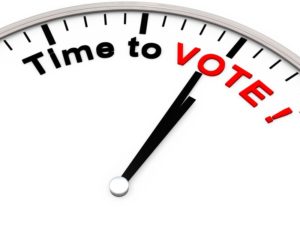Tattoos in the workplace are all too common today. By some estimates, over 40% of all workers in the United States currently sport a tattoo somewhere on their body. The question has come up repeatedly, “whether an employer can terminate an employee because of his or her tattoos?” Another variation comes in the form of “Can my employer force me to cover up my tattoos at work?” The answers to these questions largely depends on a company’s dress code policies, whether the company enforces these dress code policies on a consistent basis, and whether the tattoos have any religious significance.
Arguments for Allowing Tattoos in the Workplace
In the United States, tattoos and piercings are increasingly becoming disconnected with unprofessional stereotypes. A majority of adults do not view tattoos and piercings as unprofessional. Professionalism shouldn’t be based on how one looks, but rather how you treat others and whether or not you have a strong work ethic. Further, since many Americans already have tattoos and piercings, it is inevitable that as they age, and move into management roles in companies, that the reluctance to hire or fire an employee simply based on a tattoo is likely to wane through the years.
Another common excuse businesses make for not hiring people with tattoos is that they are likely to lose customers who may be turned off by unsightly tattoos or piercings. This argument ignores the fact that it is an unwise business strategy to risk discriminating against almost half the adult population at the expense of appeasing a few clients that may be biased towards piercings and tattoos.
Finally, tattoos and piercings are a form of body modification. Botox, plastic surgery, breast implants, fake eyebrows, hair extensions and colored hair are also examples of body modifications. While not everyone may like these or think that they’re beautiful, employees are not told to cover up these type of body modifications.
Arguments for Banning Tattoos in the Workplace
Employers have the right to adopt dress codes and grooming requirements that reflect their company culture or promote a particular brand or look. For example, a law firm might require its attorneys to dress in formal business attire, a restaurant may require its employees to dress in black pants and white shirts, and a retailer might require its employees to dress in clothing that bears the company logo. Similarly, an employer may have a legitimate policy regarding tattoos. For example, it is perfectly allowable, in most instances, for an employer to have a policy that requires employees to cover visible tattoos when working with clients or customers. Such a policy would be legal unless it violates laws prohibiting discrimination.
Title VII of the Civil Rights Act prohibits discriminatory treatment in the workplace based upon a person’s race, color, national origin, sex and religion. An appearance or grooming policy can be illegal if it is applied in a discriminatory manner. For example, if an employer only requires employees to cover tattoos that include Spanish because the employer believes they might be seen as gang related, that would be seen a discrimination based upon national origin.
A thornier issue arises when the individual claims that the tattoo is a symbol of a sincerely held religious belief. Examples may include tattoos of crucifixes or other religious symbols. In these circumstances, where an employee claims that such tattoos have religious significance and that covering them up would be a sin according to his or her beliefs, an employer may be forced to accommodate the employee unless it would cause the employer an undue hardship. This is truly the slippery slope.
An employer that applies its policies inconsistently also risks a claim of discrimination. If a male employee is terminated for showing tattoos, while female employees are not, this inconsistency could cause the employer to be facing a charge of gender discrimination.
Finally, there is the argument made by many that employers should allow tattoos because they are merely an expression of free speech that is protected by the First Amendment. WRONG!. The First Amendment is designed to protect against government efforts to stifle speech, not the efforts of the private sector (such as employers in the private sector).
There are compelling arguments on both sides of this issue. The key is that an employee should be judged on the quality of his or her work and the appearance he or she makes in the workplace under a valid and consistently applied dress code policy.
With over 30 years’ experience in advising both employees and employers on cutting edge employment law issues, let Boznos Law work with you to ensure you are ready to meet the challenges posed by the ever-changing employment law landscape. Call Bill Boznos today at (630) 375-1958 or contact us at www.boznoslawoffice.com/contact-us through our website at www.boznoslawoffice.com.



